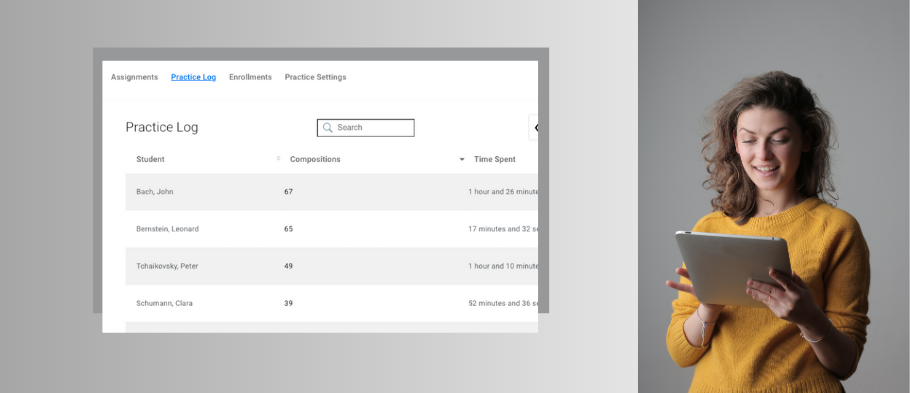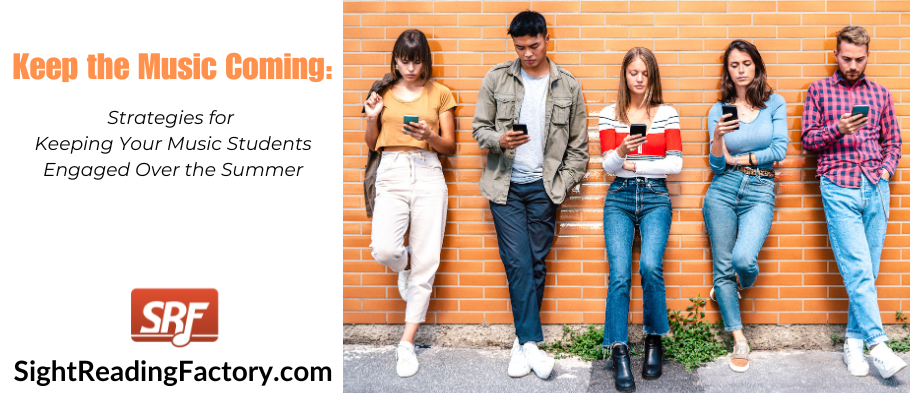As the school year winds down and the dog-days of summer loom ahead, many of us are ready to don the sunscreen and strike out in search of adventure. Soon forgotten are the thoughts of class schedules, management techniques, repertoire research, performance calendars, and rehearsal schedules. Summer is here and we have weeks and weeks before we have to begin worrying about these things again…
Before you know it, though, summer is over and we all know what those first few weeks back at school are like: scrambling to choose rep, working out scheduling conflicts in the performance venues, auditioning personnel to fill out each group, placement tests, the list goes on and on. All of these peripheral things have to happen before we can get down to the real heart of why we’re there: to teach and make music.
Then the students return, some filled with excitement, others will trepidation at another year of school. No matter how they might feel, one thing is probably for certain - they haven’t practiced their instrument or sung all summer. At all. Not once. And now, you, the teacher, have to start from farther back than where you left off last year to make up for the lost progress.
Retention of skills, and loss of skills, are real issues. Classroom general ed teachers know it, and we music educators know it, but for whatever reason, no one ever really addresses it in the music education world. Here are some ideas for keeping your music students engaged musically over the summer months:
1. Review of Literature
Send your students home with excerpts of the literature you covered the previous year. Ask them to commit to singing/playing through those excerpts 3 times a week. Incentivize this by making it clear that one or all of these excerpts may serve as their placement audition in the fall.
2. Listening Lists

The Literature teacher puts out a summer reading list, why not your music class? Choose recordings of one of the world’s most famous orchestras or a world-class choir for your students to listen to. Ask them to jot down notes about what they hear. Have your students ever listened to a piece played on period instruments? Check out the Academy of Ancient Music. Do your singers know what a countertenor is? Watch a Voces8 or Chanticleer performance on Youtube. Summer is a great time to expand a student’s musical experience with things there may not be time to cover in class. Give them a checklist and have a student-led discussion when they return to school.
3. Practicing with Sight Reading Factory
Do you currently have a teacher account with student accounts? As long as your teacher account is active, students can continue to access their student account over the summer. There are several ways to use SRF over the summer months:

- Assign a calendar of tasks For example, week 1 will be 4/4 in C major, 8 bars; week 2 will be 3/4 in G major, 8 bars; week 3 will be 3/4 in F major for 12 bars, etc… Tie the progression to their sight reading audition at the beginning of the school year.
- Practice Logs Make a contest out of which student can log the most minutes of practice over the summer. Offer an award to whomever wins (Starbucks gift card, Chipotle gift card, etc…).
4. Encourage music camps over the summer
Music camps are offered everywhere for nearly every skill level and age. While some are expensive, auditioned, and out-of-state, others are local day camps and quite affordable, especially if there is a nearby college. Research music camps in your geographical area and give your students a list of options. Or, if you’re inclined, host a camp yourself during the summer. For example, a Summer Choir Bootcamp could meet for a week in the month before school starts, maybe for a couple hours to vocalize and look ahead at next year’s repertoire. This minimal amount of rehearsing can make a huge difference in where your group begins the year.
5. Summer Choir/Band/Orchestra in the Park/Square/Mall
Organize a chamber group, or even the full group, if possible, to meet up and perform once a month at a park or other local, free venue. Utilize pieces you performed the previous year, meet for an hour beforehand to rehearse, and then play! Venue ideas could include nursing homes, retirement centers, daycare centers, malls, parks, libraries, service groups such as VFW, Moose Lodge, Lions Club, etc… Many will welcome free performances if offered. Contact them in advance to arrange. Bonus: It could count as service hours for some of your students if you’re playing for a senior center or a community group.

6. Attend a Live Performance
Many communities offer a summer series with live music. Whether it be bluegrass, jazz, opera, orchestral, organ recitals, tribute bands, live music offerings are often free and available to the public. Ask your students to attend something and write a review of it. What did they hear? What genre? How was the environment? Describe the acoustics; did they use amplification? How would you characterize the performer: serious, funny, laid back, amateur, professional? Live performances not only actively engage your students as an audience member, but it also encourages them to think critically about the actual performance and what is involved in doing those performances.
As you can see, there are many ways to keep your students engaged, if not performing, over the summer. While we would all love to jump back into classroom rehearsals exactly where we left off, we realistically know that’s not always possible. These activities filling the musical gap during those hot summer months can make that seamless transition more likely, but ultimately, the most important thing is that our students remain involved, engaged, and exposed to great music even when we aren’t there.
If you would like to know more about Sight Reading Factory and how student accounts can benefit your students over the summer, feel free to contact us.
Share this article